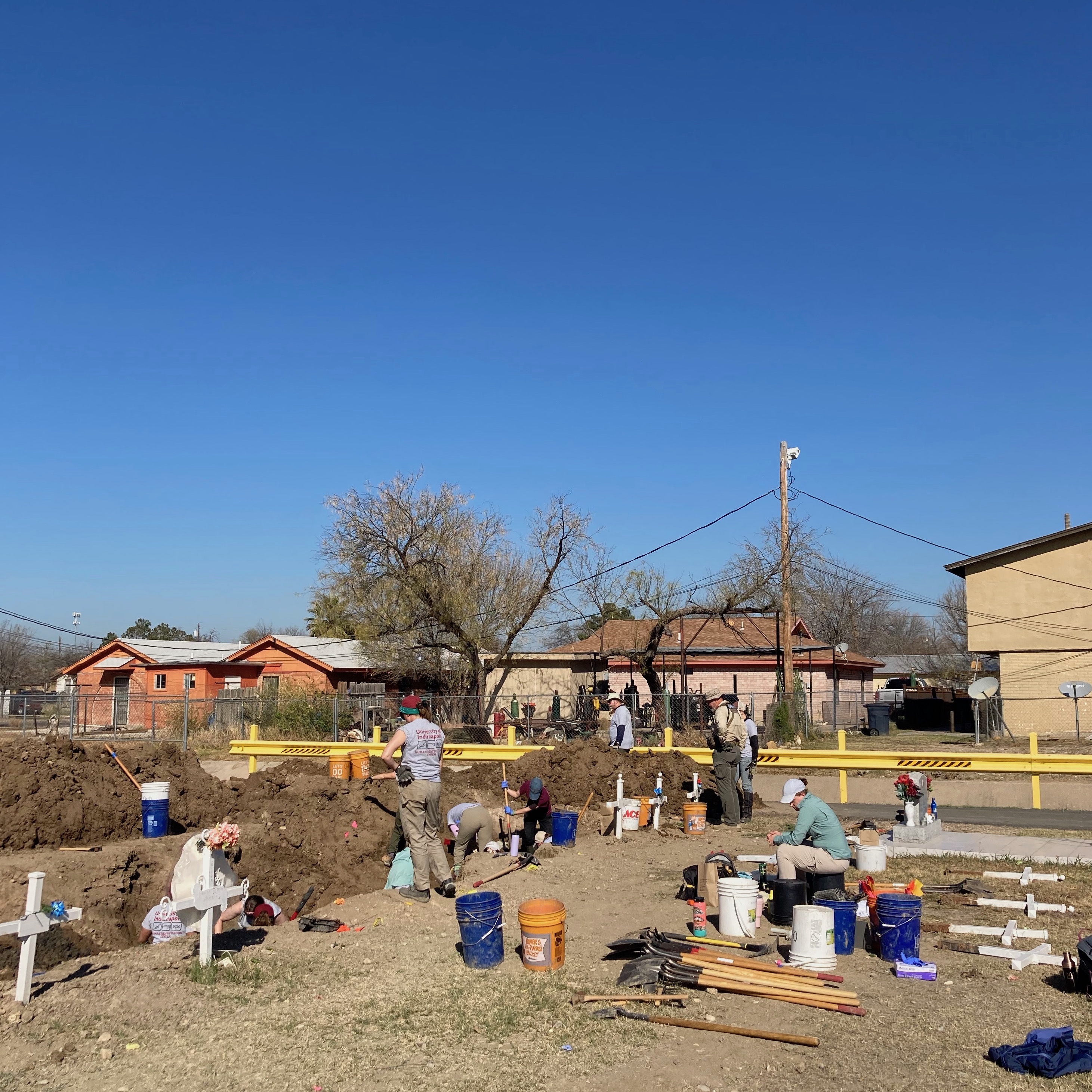
Bringing up the Bodies: The forensic anthropologists who redress migrant death in Texas
The Baffler, November 2023
“In one case, a groundskeeper pointed out a site where he had forgotten to replace three markers after mowing the grass. They dug there, and instead of three, there turned out to be eight sets of remains. Later, a man driving through the cemetery tipped the group off without even stopping his truck. “He just slowed down enough to be like, ‘There’s a bunch buried right here, along the street,’” Spradley said. Right where he’d indicated, they found four or five small, custom-made boxes containing unidentified remains.
Another time, a woman approached Spradley saying, “My husband doesn’t want me to tell you this,” before continuing, “I couldn’t buy the plot next to my father because the funeral home told me that—she used the term ‘illegal’—‘illegal people were buried next to him.’” They went to the area next to where the woman’s father was buried and started to dig an exploratory trench. Immediately, they started to see depressions and soft soil—telltale signs of recent burials. They found two unidentified bodies right next to the father, as though the funeral home had simply taken advantage of the open hole to dispose of some remains. They kept digging in case there were more. In the end, they found twelve bodies.
By now, OpID has conducted exhumations in seven counties across South Texas. Between those recoveries and direct transfers from surrounding counties, they have 495 cases, 101 of which have been identified.“
The Baffler, November 2023
“In one case, a groundskeeper pointed out a site where he had forgotten to replace three markers after mowing the grass. They dug there, and instead of three, there turned out to be eight sets of remains. Later, a man driving through the cemetery tipped the group off without even stopping his truck. “He just slowed down enough to be like, ‘There’s a bunch buried right here, along the street,’” Spradley said. Right where he’d indicated, they found four or five small, custom-made boxes containing unidentified remains.
Another time, a woman approached Spradley saying, “My husband doesn’t want me to tell you this,” before continuing, “I couldn’t buy the plot next to my father because the funeral home told me that—she used the term ‘illegal’—‘illegal people were buried next to him.’” They went to the area next to where the woman’s father was buried and started to dig an exploratory trench. Immediately, they started to see depressions and soft soil—telltale signs of recent burials. They found two unidentified bodies right next to the father, as though the funeral home had simply taken advantage of the open hole to dispose of some remains. They kept digging in case there were more. In the end, they found twelve bodies.
By now, OpID has conducted exhumations in seven counties across South Texas. Between those recoveries and direct transfers from surrounding counties, they have 495 cases, 101 of which have been identified.“

